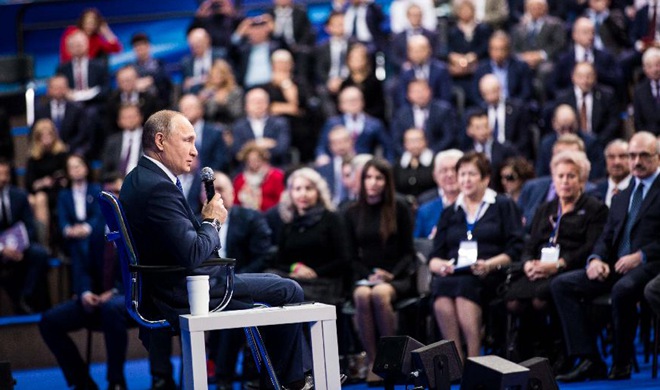by Christopher Guly
OTTAWA, Jan. 30 (Xinhua) -- No major breakthroughs emerged from the sixth round of North American Free Trade Agreement (NAFTA) renegotiations that concluded in Canada on Monday.
But a veteran Canadian international trade lawyer believed the painstaking process to achieve consensus among Canada, the United States and Mexico on the future of their trilateral trade pact could become more of a cooperative than confrontational process if NAFTA was reviewed more frequently.
"There should be more regular discussions among the three countries rather than wait until a politician has said 'enough's enough' and wants to terminate the agreement," said Jean-Marc Clement in an interview with Xinhua Tuesday. "There would be less drama and hopefully some improvements."
U.S. President Donald Trump has repeatedly threatened to terminate 24-year-old NAFTA, which he has called a "horrible deal." However, Clement, who has practised international trade law for 25 years and is a member of the Canadian government's International Trade Tribunal Advisory Committee, said that periodic reviews of NAFTA, which could be conducted as frequently as every year, could address problem areas as they arise before they lead to full-scale negotiations to determine whether the agreement survives.
Clement also told Xinhua that NAFTA shouldn't be scrapped because of disputes regarding certain chapters, such as the one regarding rules of origin in which the United States wants to increase North American content in vehicles from 62.5 percent to 85 percent, with half of all automotive parts made in the United States.
Last week, Canada proposed expanding the definition of North American content to include intellectual property and new technologies, such as electrified and self-driving vehicles emerging on the continent to help meet the U.S. demand.
On Monday, U.S. Trade Representative Robert Lighthizer said the Canadian compromise would result in less regional content and fewer jobs in all three countries.
But Clement said that NAFTA's survival would also send an important message internationally. "If NAFTA should fail, what signals does it send to other countries that want to explore free trade with those three nations?"
The uncertainty of the agreement's future has also created "great anxiety" for Canadian companies, according to the president of the Canadian Federation of Independent Business, which represents 109,000 small and medium-sized enterprises (SMEs) across Canada.
Dan Kelly said the NAFTA talks, which began last year, offered early signs of optimism when Canadian, American and Mexican negotiators agreed to include a new chapter to highlight the important role that SMEs play in the economy, and to promote cooperation and information sharing among them across all three borders.
Kelly told Xinhua that NAFTA has helped Canadian small businesses, which comprise more than 90 percent of Canadian exporters, have "unfettered access" to markets in Mexico and, most importantly, the United States, and has also helped SMEs import duty-free goods and services.
Broadening its trade agreements, such as with the newly named 11-country Comprehensive and Progressive Agreement for Trans-Pacific Partnership Canada recently agreed to sign onto, will provide Canada with an "insurance policy if NAFTA goes sideways and we can secure markets elsewhere," Kelly said in an interview.
"I'm still optimistic we're headed for a deal with NAFTA," he said. "But to know where the negotiations are headed is to know the mind of Donald Trump."

















